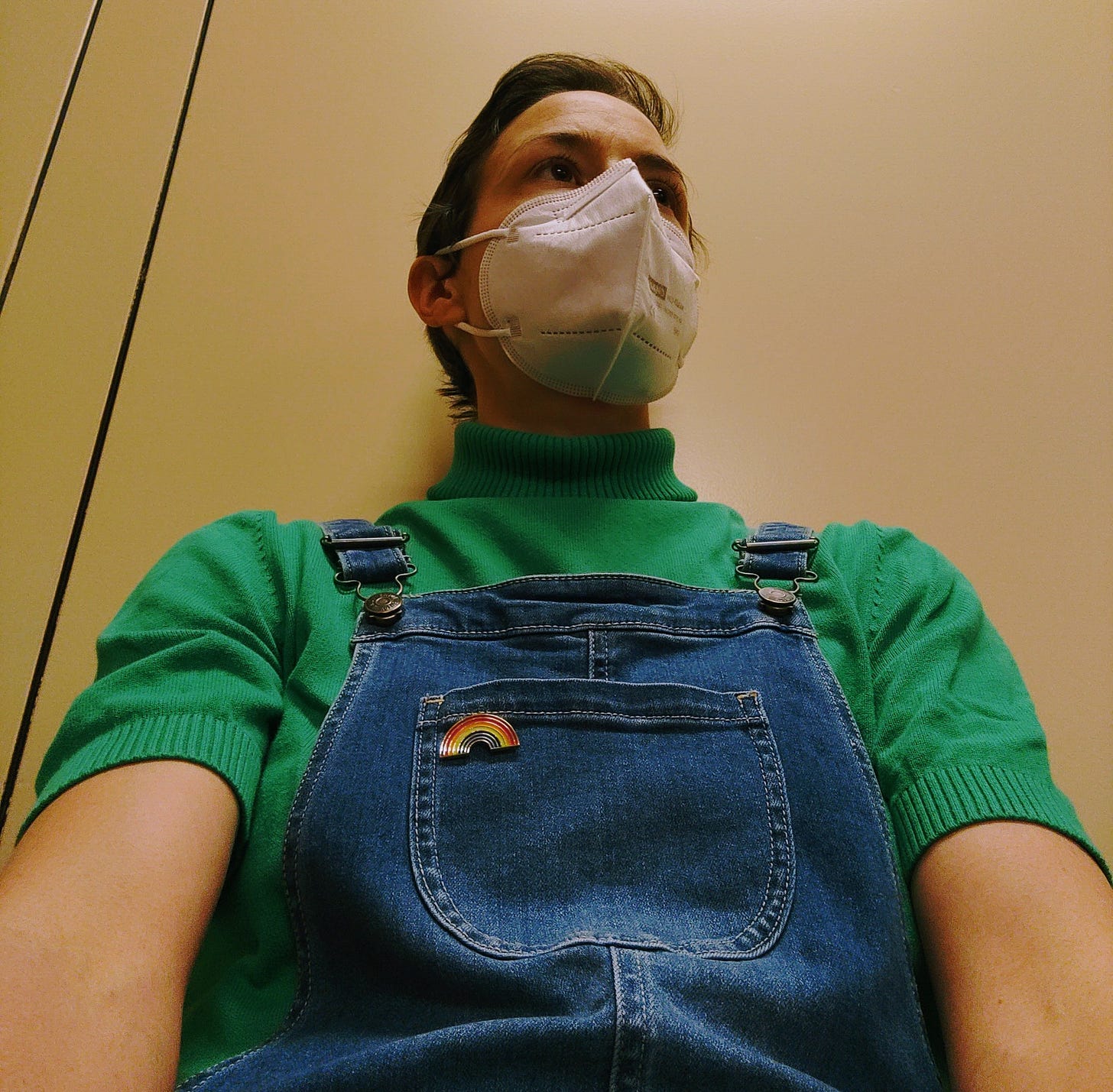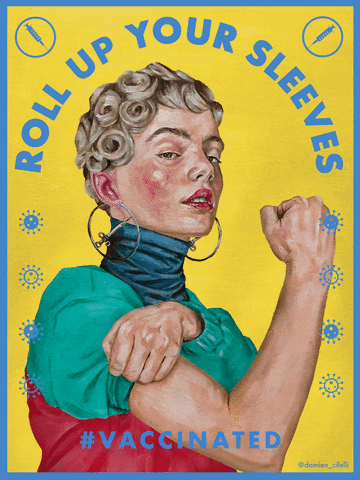Long Covid 101
Sponsored by sets of chronic conditions: What is Long Covid? What is medical gaslighting?
Hi there! Thank you for subscribing to Write What Remains, a newsletter that provides an insight into life with chronic illness. If you enjoy this post and/or know other people who would benefit from its content, please consider sharing it. I hope that the content will make others feel less alone.
As such, this is a free publication so it reaches as many people as possible. I’m so grateful for everyone who spends some of their precious time & energy reading what I share. If you believe this work is important and can afford to, please consider becoming a paid subscriber for a € 7/month (or € 70/annual!) In my third year of Long COVID, your support would mean a lot. How? Just check at the end of this post.
Dearest reader,
thank you for being here! This is a text I have been meaning to write for a while, and it has been floating around my mind for months. Now that Austria has finally entered a cooler season, I have the cognitive space and ability again to put those thoughts into words.
Back to Basics
Fall feels to many, including me, like a fresh start thanks to the academic calendar. Coinciding with the return to schools and universities are rising numbers of various infections and viruses, including Covid-19. It is not surprising, then, to notice that there has been a clear uptick in Covid-19 cases with the turn of the season (in the US, though, the surge took place over the summer months and seems to decline now).
I hate to rain on everyone’s parade, but: The pandemic ain’t over. It never stopped. Governments have just decided on the narrative of the pandemic’s over, mandates for masks, air filtration, and other means to avoid a further spread of the virus are so last season, and it’s, after all, a virus we will just have to get used to.
Sorry to break it to y’all, but Covid-19 never got that memo. Immunity through a previous infection does not last for very long and it’s not just “another virus”. We are living in a mass-disabling event with at least 400 million people worldwide living with Long Covid.
Since very few people continuously wear masks, for example on public transport or in small indoor spaces, I figured it’s time to go back to basics and share some information about Long Covid. What it is. How you get it. And why the pandemic never ended.
(Re-)Read Part 1, 2 & 3 of “The Art of Losing” to get a sense of what life is like with Long Covid by following the links:
The Art of Losing, Part 1 about a new perspective on loss and an introduction to this topic
The Art of Losing, Part 2 about losing relationships and trust
The Art of Losing, Part 3 about (disenfranchised) grief and the changed relationships to myself and others.
What is Long Covid?
“For some people, symptoms can last longer [than 12 weeks]. This is called long COVID or post COVID-19 syndrome. Long COVID is a new condition which is still being studied.” (NHS UK)
Okay, so you get Covid and if you still have symptoms after 12 weeks, then you have Long Covid. Anything else?
“Long COVID is defined as a chronic condition that occurs after SARS-CoV-2 infection and is present for at least 3 months. Long COVID includes a wide range of symptoms or conditions that may improve, worsen, or be ongoing.” (CDC USA)
So it’s chronic, but it’s dynamic in how it can evolve. Good to know.
The severity of the initial infection is no indicator whether someone will develop chronic symptoms or not. In my case, it wasn’t too bad: I had a low fever for a few days and no energy, but I did not have to be hospitalized nor did I need medication, except for the odd over-the-counter painkiller for headaches.
I had been up-to-date with my vaccinations and I was still masking at the time, even though the Polish government declared the pandemic to be over well before other countries followed suit. To this day, I am not sure where I could have caught Covid-19; not that it matters now.
Let’s look at one more definition for Long Covid from a recent review article that was published in Nature Medicine:
“Long COVID represents the constellation of post-acute and long-term health effects caused by SARS-CoV-2 infection; it is a complex, multisystem disorder that can affect nearly every organ system and can be severely disabling.”
This last definition introduces some crucial aspects of this “complex, multisystem disorder” that the ones from the CDC and NHS are missing. Unlike we might have been led to believe after the first wave of Covid-19 that affected predominantely people’s airways and lungs, it is not (just) a respiratory disease, but “can affect nearly every organ system”. With these facts in mind, some of the most common symptoms like brain fog, severe fatigue, sleep disturbances, etc. make a lot more sense.
While the vaccines were and are an important part of the strategy to keep a further spread in check, it is not the only one nor is it the most important! Unfortunately, most governments push it as the solution against an infection and Long Covid (for example the CDC in the US). If it were that effective, fewer people would suffer the long-term consequences of this virus.
The best way to avoid Long Covid? Do not get Covid-19.
The best way to minize that risk?
Wear a high-quality respiratory mask (N95, FFP2) that fits well
Improve air quality indoors (by opening windows, measuring CO2 levels, and/or using air filters)
And continue to do what we learned during the initial phases of the pandemic:
Wash your hands (it’s shocking how many people stopped doing that)
Social distancing, especially when you feel sick (but then you should stay home, really)
Get tested (another problem, of course, since in most places it’s now quite difficult to have access to affordable testing)
Tell other people to wear a freaking mask!
Medical Gaslighting
Over 200 different symptoms have been counted by people who were diagnosed with Long Covid. Having a single test or diagnostic method is thus impossible. Realistically, when you suspect you might have Long Covid, you will not be believed at first or your symptoms might be attributed to mental health. Welcome to medical gaslighting!
Medical gaslighting: “when health care professionals seem to invalidate or ignore your concerns. It can be linked to missed diagnoses, delayed treatment, and poor health outcomes. It might damage your trust in the health care system and make you less likely to seek care.”
https://www.health.harvard.edu/staying-healthy/what-to-do-about-medical-gaslighting
Medical gaslighting is all too common when seeking diagnoses like Long Covid and/or ME/CFS (myalgic encephalomyelitis).1 I experienced it, too, and continue to. For six months after my first infection, when I realized something was wrong and I sought out my GP, I was dismissed. I was told to wait for my symptoms to disappear.
There was no information about what to do and what to avoid, like overexerting myself (physically, mentally, emotionally, and socially). Trying to keep up my active life was my sure path to a set of chronic conditions (hello PEM! aka post exertional malaise). If it weren’t for my therapist, who turned out to be my most valuable resource for my health, I would be even worse off.
Vita, the protagonist of Kate Weinberg’s 2024 novel There’s Nothing Wrong With Her is frustrated for the same reasons and sees the “limits of the medical establishment, its proof-led myopia, its deep unconscious bias against women and neurosis.” (153) After countless tests and screenings, even her doctor-boyfriend starts to believe that “there’s nothing wrong with her”, that it’s all in her head. Welcome to medical gaslighting.
Stay tuned for the next installment of “Long Covid 101” on the most common symptoms!
PS: The likelihood of experiencing medical gaslighting is significantly higher for women, people of color, and another minority groups.
If you understand what I’m talking about: I’m sorry and it sucks and I see you.
If you know someone that might be going through something like this, and chances are that you do: Please show kindness and grace and compassion. Don’t tell us to “think positive”, that “everything happens for a reason”, or any other such bullshit. Listen to us, believe us, and see us. And please don’t forget us!
Glimmers
Glimmer: a micro moment of joy, awe, hope, safety; opposite of trigger ✨✨✨
The sound Luna makes when she is fast asleep and lets out a little “sigh” 🐱
Luna waking me up from nightmares ⏰
Short walks in the cool fall air 🍁🍁🍁
I received a bursary for an exciting online class. More soon… 🤓📝
A question that remains…
Have you experienced “medical gaslighting” or know people who have? 🤔🤔🤔
Most patients prefer the term ME (myalgic encephalomyelitis) over CFS (chronic fatigue syndrome) as the latter downplays the severity of the illness. American author Laura Hillenbrand described it as such: “Fatigue is what we experience, but it is what a match is to an atomic bomb.”











Das ist so informativ und toll geschrieben, danke - freue mich auf die nächsten Posts!
Glimmer: Having dinner with my nephew.
Pre-Glimmer: Waiting for Fall weather to arrive in Arizona.
Thank you for another insightful post, Yvonne. Covid is still top-of-mind for Melanie and me because of you and your posts.